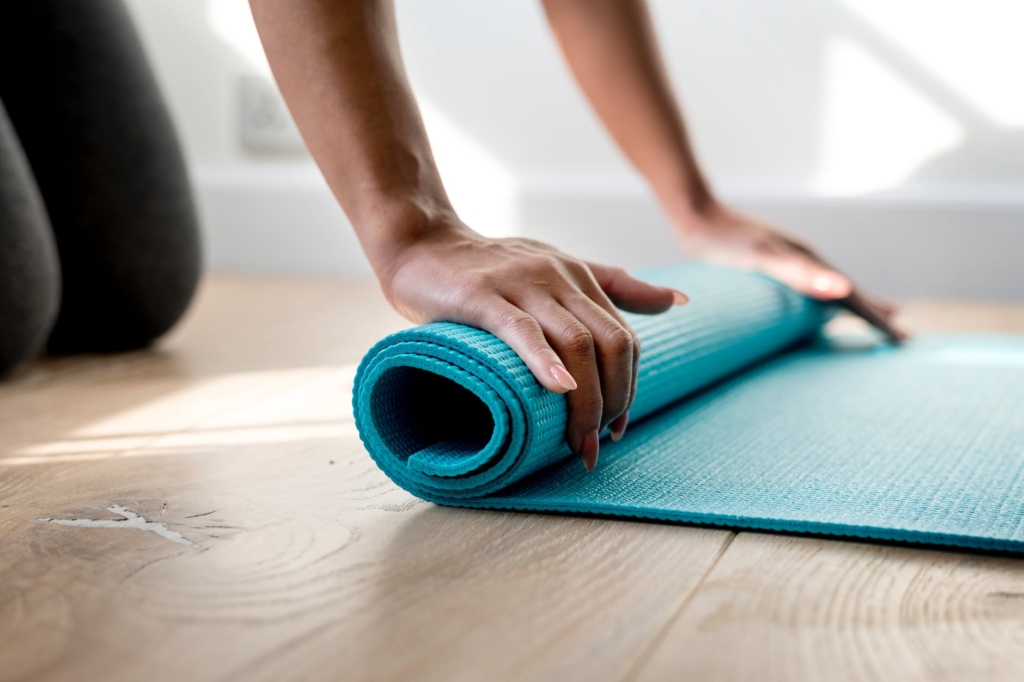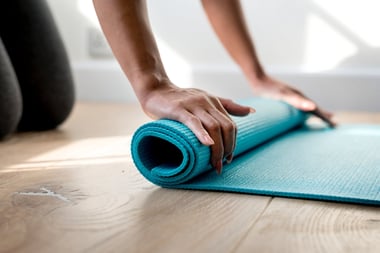5 Exercises That Directly Impact on Mental Health

Why does exercise make us feel healthier, mentally?
Often, individuals who workout habitually do it merely for the reason that it makes them feel better. Exercise can lift your mood, attentiveness and vigilance. It can also help give you an optimistic viewpoint on life. It can help in certain medical conditions as well, such as lung diseases, which sometimes require an oxygen concentrator.
The association between exercise and mental health is complex. Sedentariness can be both a reason and an outcome of mental illness, for instance. And while we don’t know precisely why or how exercise enhances mood, here are a few probable explanations:
- A frequent workout can assist you in sleeping better - decent sleep helps you control your moods
- Exercise can revamp your sense of control, dealing with capability and self-confidence. Individuals who exercise habitually often state how wonderful accomplishing a goal makes them feel
- Exercise can divert you from pessimistic feelings and offer chances to attempt new experiences
- It delivers a prospect to meet people and get communal support if you workout with others
- The number of chemicals in the brain, for example, serotonin, stress hormones, and endorphins, alter when you exercise
- Exercise surges your energy levels
- Physical movement can be a means of release for your disappointments
Here are some exercises that have been recognised to give your mental health a boost
1. Pilates
The mental health advantages of Pilates usually get over ignored due to the old-style emphasis on Pilates for back health and core strength.
"Joseph Pilates (Pilates' founder), had such a firm belief in the association between physical and mental health, he formerly named his scheme of exercise 'controlology', which means the control of the body with the mind,' states Karen Laing, a Pilates Trainer who has dealt with anxiety."
"Attaining the ability of Pilates and concentrating on method and how your physique feels during a class is a vastly watchful activity,' she declares. 'Pilates is excellent for anxiety lessening and relaxation and good for Alpha sorts as there's no competitive aspect! Apart from the feelings of comfort from moving and activating your body, its emphasis on breathing and easing can aid to turn on the body's parasympathetic nervous system, which is in charge of sleep and relaxation."
2. Yoga
Existing analyses of an extensive variety of yoga exercises advocate that they can decrease the effect of additional stress responses and may help with both anxiety and depression. In this aspect, yoga acts like other self-calming practices, like meditation, relaxation, workout, or even mingling with friends.
By decreasing apparent stress and anxiety, yoga seems to regulate stress response systems. This, sequentially, reduces physiological arousal — for instance, decreasing the heart rate, reducing blood pressure, and enabling respiration. There is also proof that yoga exercises aids in raising heart rate inconsistency, a pointer of the body's capability to respond to stress more compliantly.
For a lot of patients battling with depression, anxiety, or stress, yoga may be an extremely alluring way to better handle symptoms. Certainly, the scientific learning of yoga validates that mental and physical health are not just carefully associated but are principally alike. The proof is mounting that yoga practice is a comparatively low-risk, high-end tactic to refining general health.
3. Boxing
Bodily movement is a recognised tension reliever; racers experience the marvel of a ‘runner’s high’, and boxing is no exception. When exercising on the punching bag, your brain surges the formation of endorphins, the neurotransmitters that generate positive feelings. Punching aids to release muscle tension that can gather when you are under stress. As you continue to punch, you will notice that your concentration is better, raising your attentiveness, and assisting you to fail to recall the details of why you are strained.
Boxing is an outstanding way of getting to know yourself. You will begin to appreciate and recognise more about how your mind functions and responds as you create your exclusive boxing style. A boxing exercise is a great deal more premeditated than hurling a handful of accidental punches.
4. Walking
The physical developments you achieve by walking can aid to advance your mental health too. If you feel healthier and feel in command of your weight, your body perception and self-confidence can upsurge - so it's not only the physical advantages that you'll discover when you begin walking.
Walk habitually. Devote in your longstanding health now and you’ll see the alteration that walking can make to your mind, your body and your public life. Walking in a group is a good way to get in progress and remain driven.
Females who undertook an approximated 150 minutes of reasonable exercise (golf, tennis, aerobics classes, swimming, or line-dancing) or 200 minutes of walking every week had more liveliness, mingled more, felt well emotionally, and weren't as restricted by their depression when scientists followed up after three years.
They also had a lesser amount of pain and did better physically, even though the psychological advantage was superior.
5. Shape your muscles
Increase your strength, increase your contentment? A new research of 45 stroke survivors with depression revealed that a 10-week strength exercise scheme assisted in decreasing symptoms of depression (among various other advantages).
“Strength training is about mastery and control,” declares Leslie Seppinni, PhD., a clinical psychologist, and family therapist in Beverly Hills. “It entails complete devotion and muscles forming, from devotion and exercise.”
This article was kindly written and contributed by Hassan Khan.



